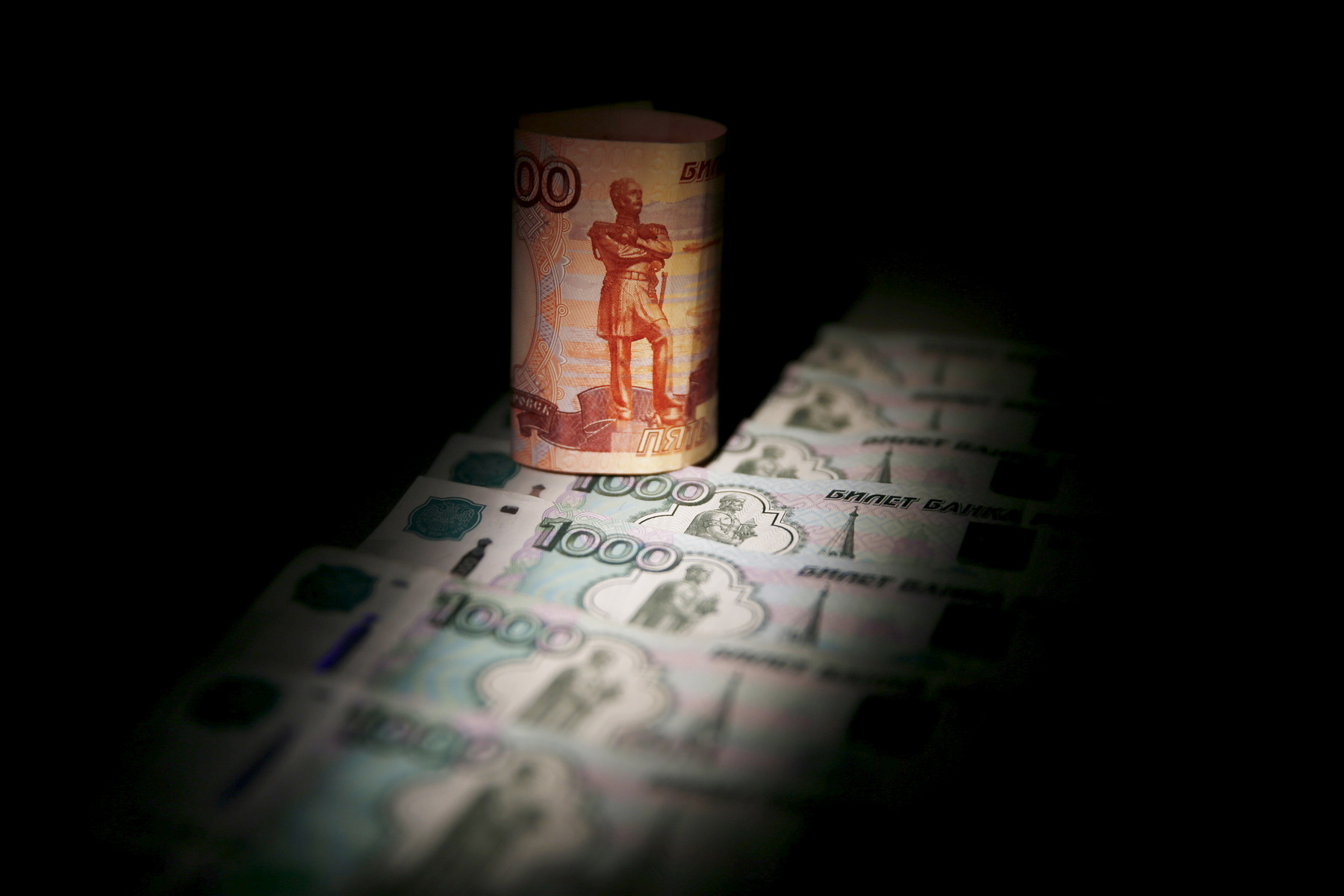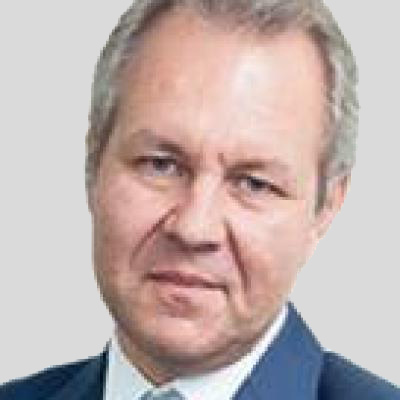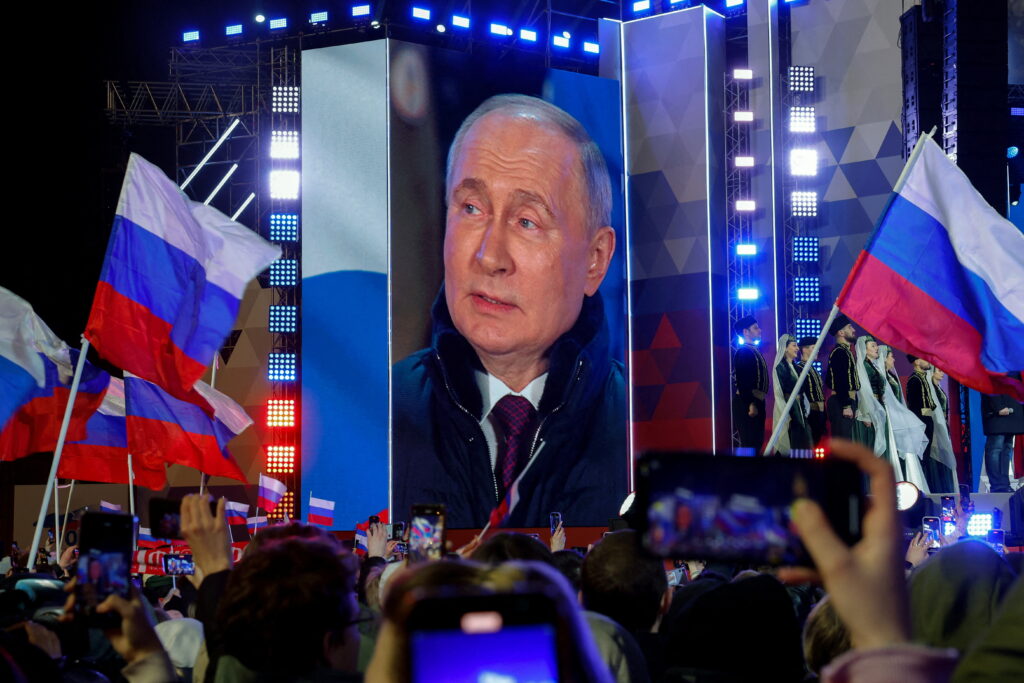Russia is already in its twenty-second year under Putin; there could be many more to come. Experts have given the system established by the president and his associates/henchmen a variety of labels: from a guided democracy or hybrid system to an authoritarian or even fascist regime. However, none of these labels reflect the most important characteristic of Russia’s socio-economic system, which is exceptional and requires special terminology.
Researchers tend to view contemporary Russia as a state that deviates from a norm. A recent book by the author of this text criticises this approach. Putin’s system is in some ways not a state in the traditional sense of the word. It lacks clear ideology; it has rather blurred and undefined boundaries; and, most importantly, it does not distinguish between the private and public spheres, treating both quite arbitrarily; finally, it is hostile to legal culture as such, constantly changing the rules and passing vague laws that could victimise any of its subjects at any given time.
The nature of this bizarre regime is set by the main goal of its beneficiaries: personal enrichment. Putin did not discover this system; it has functioned in a more or less similar form outside Russia – in present-day Kazakhstan, Tajikistan, Azerbaijan and Turkmenistan. Yet an important difference between Russia and these countries is the formalised nature of the Russian regime, with no family or clan centre. The strategy of personal enrichment implies the complete commercialisation of power and public offices, which are treated as an asset with a set price. The feeling of ‘gratitude’ for promotions forms a fundamental ‘bond’ between the cogs in the profit-making mechanism of power. The crucial point is that the legality of this profit should not be undermined. The beneficiaries of the system extract it not in violation of any codified norms but in compliance. The state apparatus serves to ensure the sustainability of a business that involves officials and their relatives and partners. It ensures the collection of budget revenue, which is partly appropriated by the beneficiaries of the system and is partly used to meet the smallest needs of the population. A very small bit of it is spent on keeping the material and social infrastructure going. The first goal remains the primary one; no matter how much budget revenues increase, the country is not building more roads, new technological advances are not being made; basic social benefits have not increased in real terms in two decades.
This is exactly what is meant by the ‘commercial state’, which is not the same as a ‘captured state’, since the latter usually refers to a state in which real power has been seized by oligarchs or mobsters with no formal political power. This is not the case in Russia: the country is ruled by those who are elected or appointed by a legally defined procedure. The commercial state has formal attributes of a state (separation of powers, fiscal and judicial systems, an army, a foreign policy, etc.). In reality it is a business structure imitating a state; it is this imitation that determines its strengths and weaknesses.
Its strength is that, while possessing the formal attributes of a state, Russia’s ‘Putin and Co.’ enterprise is endowed with enormous powers that no corporation or mafia structure has. It can legally create armed forces, threaten its neighbours, be a party to international agreements, engage in sovereign borrowing and issue currency, set and collect taxes, award (and sell) citizenship, grant diplomatic immunity to its true believers, and much more. It piggybacks on the national economy, converts public assets and funds into private ones, and creates the tools to maintain the state in which all this is possible. It intimidates the rest of the world, or parts of it, with its aggressive and unpredictable behaviour; but it has neither a clear programme for external expansion nor an expectation of its possible gains. Rather, the foreign policy is to disrupt as many other political entities as possible while maintaining stability within its own borders.
Perceived globally and domestically as a classical state rather than a huge corporation, Putin’s Russia has special powers primarily because it has tools at its disposal unavailable to the leaders of most civilised states: de facto private armies; limitless financial resources spent on, among other things, bribery and corruption; the ability to grant citizenship and asylum to its supporters and adherents, etc. The incumbent authorities have virtually no taboos, which is why a dialogue with such a system is so hard. Civilised countries are dumbstruck when faced with a ‘partner’ that does not want to hear about the law and legislation, that denies the difference between the truth and lies, that in principle makes it clear that it can buy anything, even when this is not justified by the logic of conventional political expediency. The illusion of statehood is the most important asset that Putin and his entourage have. That is why their favourite word is ‘sovereignty’. Their most sacred action is its defence or establishment. The world which values citizens’ rights over those of the state has no way of responding.
The weakness of the ‘commercial state’ is its extreme internal inefficiency. Its beneficiaries, who maintain the illusion of acting as ‘regular’ statespersons, cannot openly act as owners of the country they have de facto privatised. Unlike, for instance, the petrol monarchies, where members of the royal families are among the richest people in the world, sometimes calling themselves presidents and prime ministers, Putin and his entourage, who declare incomes of several million roubles a year, cannot boast such wealth (although there have been some exceptions among Russian politicians lately). Therefore, the current system bears immense transaction costs. For officials to get the money from the budget that they think is theirs, they have to take actions or initiate projects that cost many times the amount that should eventually end up in their pockets. As the system develops, the projects become more and more exotic. Now, for example, there is even talk of a Salekhard–Igarka Railway, aka the Dead Road. Their cost skyrockets. The share of funds that reaches the real contractors becomes ever smaller. At the same time, the elites realise there are no guarantees of ensuring the inheritance of their accumulated wealth, which generates a secondary flow of funds: the money has to be whitewashed and the transaction costs of this process are also very high. As a result, the main problem of the ‘commercial state’ is not the fact that a lot of money is embezzled (which is precisely its goal), but how much greater amounts of money are wasted on window dressing. This boosts operational costs, which do not translate into higher efficiency.
An extra problem comes with maintaining the bureaucratic apparatus, which is getting more costly – both formally and informally – and the trend is irreversible. A ‘normal’ state would respond by fighting corruption. That will not work in this case: the more dangerous the civil service becomes, the higher the ‘risk premium’ enjoyed by those willing to join the game. As a result, the arrest of a sticky-fingered official with another billion roubles hidden in a shoebox and a watch collection only increases the appetites of thousands of others. These appetites far exceed the funds reclaimed by the state from the loser. Russia’s economic growth has stalled in recent years not so much because of unstable oil prices and Western sanctions, but because the bucket used to draw the budgetary funds is leaking. The commercial state has reached the point where any extra funds stolen from the national economy go to its direct beneficiaries. The desire to protect some of it from immediate looting leads to the formation of financial reserves, which in such a situation is a must. But the freezing of funds further slows down the development of the country and society.
The emergence of a completely new type of state (or quasi-state, to be more precise) is in itself one of the most original innovations in international politics in the 21st century. The Russian example shows that, in essence, a commercial company is able to privatise state institutions and eviscerate them so that virtually no statesman-like approach can be traced in the actions of the politicians at the helm. The pursuit of maximum enrichment is an effective means of consolidating the regime’s group of beneficiaries, expanding it and making membership in it attractive. This group ensures the loyalty of the ‘cogs’ and the high degree of controllability of the whole system. The lack of any checks and balances, whether moral or financial, makes the commercial state a wolf in sheep’s clothing invading a peaceful flock: the sheep are practically incapable of resisting the wolf, since they have no understanding of how their partner’s claims and techniques may change as the game progresses (hence the regime’s political analysts have been actively discussing the concept of ‘a world without rules’ in recent years). At the same time, greed is at the heart of this system. Greed is like a gas (not necessarily methane), which fills any space available and respects no limits. The proprietors of the commercial state start off with relatively little. Fairly quickly, they move on to nab any revenues generated by the system while rationing what they are willing to share with their subjects. Ultimately, they will inevitably launch an unbridled assault on the rights of the subjects and consciously worsen their living conditions. In Russia, this became apparent in the second half of the 2010s and can be clearly seen in the ‘optimisation’ of medicine and postponement of the retirement age. In the long run, such cuts in compensation for citizens not belonging to the ruling group will only increase.
The commercial state cannot be disrupted from the inside or from the outside. It shapes its domestic policy and makes sure there is enough money and resources to fight the opposition; it creates incentives for driving dissenters out of the country and replacing them with loyalists from neighbouring countries; it builds an information infrastructure of surveillance and terror. At the same time, it is sufficiently adventurous and aggressive in its foreign policy to elicit forceful confrontation from Western countries. It is much more likely that at some stage an agreement on the ‘red lines’ will come and the commercial state will get a free hand within these lines. However, the commercial state is untenable in the longer run: it can absorb any amount of resources with no positive impact on society; by definition, it does not care about modernisation or development; it continuously increases the circle of spongers and so can exist only as long as the privatised country generates income that suits them (it should be kept in mind that the appetites of the elite are constantly growing). Unlike Western economies, which, having harnessed the latest technological wave, have entered the world of ‘unlimited wealth’ (both due to the changes in the nature of the reproduction process and as a result of new financial engineering), the commercial state has shut the door to such a revolutionary transition. It is now left with only natural resources dwindling away (and enjoying ever less demand globally) and a population that is becoming ever more impoverished. With time, the expectations of the ruling elite will come into irreconcilable conflict with the country’s capabilities. Then the time for change will come.
The fate of the Russian commercial state is in the balance. It will be decided not in the trenches of the Donbass, in the offices of Washington and Brussels, or even in the streets of Russian megalopolises. It will be set by the successes of decarbonisation, by the new possibilities of global finance, and by a world that offers better opportunities for talented Russians. The regime in Russia cannot be destroyed – it can only be outlived.










